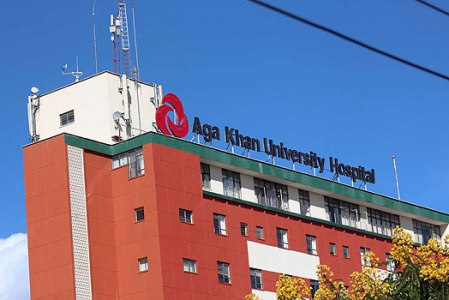Millions benefit as Aga Khan Development Network’s COVID-19 response ends 2023-06-07
The Aga Khan Development Network’s Eastern Africa Regional COVID-19 Response Programme, funded with 9.4 million euros, is set to conclude this month, leaving a significant impact on over 10 million individuals across Kenya, Uganda, Tanzania, and Mozambique.
Launched in December 2020, the initiative aimed to address the health, economic, and social vulnerabilities caused by the COVID-19 pandemic in Eastern Africa. The program, jointly funded by the European Union (EU) and the Aga Khan Foundation, followed a three-pronged approach to improve systemic, gender-sensitive responses.
The EU contributed 6.2 million euros, while the Aga Khan Foundation provided 3.2 million euros. These funds were utilized to overcome vulnerabilities in target communities, enhance their ability to cope with the pandemic’s impact, and improve health delivery systems.
Henriette Geiger, the EU Ambassador to Kenya, expressed her satisfaction with the program’s outcomes, particularly in the livelihoods component that benefited young people and their families. She stated, “Our interventions provided critical support in the health sector during the most acute phases of the COVID-19 pandemic. I am delighted to see many positive outcomes of the interventions, especially in the livelihoods component that will continue to benefit young people to provide for themselves and their families and enable them to live healthy lives.”
Over the course of 30 months, the program supported 25 public healthcare facilities in Kenya, Uganda, Tanzania, and Mozambique. It focused on capacity building, supplying hospital equipment and personal protective equipment (PPE), and enhancing existing infrastructure, including digital health platforms.
In addition, the response program aimed to build community resilience by raising COVID-19 awareness among vulnerable groups and training young journalists to share stories of hope. It also collaborated with 267 local civil society organizations (CSOs) to address the needs of the most vulnerable community members by providing training and rapid deployment of funds.
Riaz Nathu, Aga Khan Foundation Regional CEO, commended the partnership with local CSOs, which strengthened the program’s capacity to meet community needs and fostered networking and support among Civil Society Organizations. He emphasized the importance of such networks for local CSO empowerment and their work in communities.
The program also focused on strengthening healthcare systems, as they were severely affected by the pandemic. Frontline healthcare workers were trained, and government health facilities received essential supplies such as PPE, COVID-19 testing kits, intensive care equipment, and digital healthcare infrastructure. Furthermore, it improved access to adolescent and youth-friendly health services for over 45,000 young individuals. The project specifically addressed the needs of young girls, providing improved access to sexual and reproductive health services, gender-based violence support, and mental health services. Additionally, the initiative supported youth through innovation grants and design sessions to enhance their livelihood opportunities.
Riaz Nathu highlighted the impact of youth learning platforms, which provided spaces for networking, sharing innovative ideas, and finding local solutions to community challenges.
Throughout the program’s duration, one hundred inspiring stories of hope were shared across various platforms, showcasing how people navigated and overcame challenging times.
The Aga Khan Foundation UK led the program, with implementing partners including the Aga Khan Foundation in Kenya, Tanzania, Uganda, and Mozambique, Aga Khan Health Services in Kenya and Tanzania, Aga Khan University Hospital, Aga Khan University’s Institute for Human Development, and the Graduate School of Media Studies & Communication. Triggerise Stitching was also involved in the implementation.
- 464 reads
 Ismaili.NET - Heritage F.I.E.L.D.
Ismaili.NET - Heritage F.I.E.L.D.